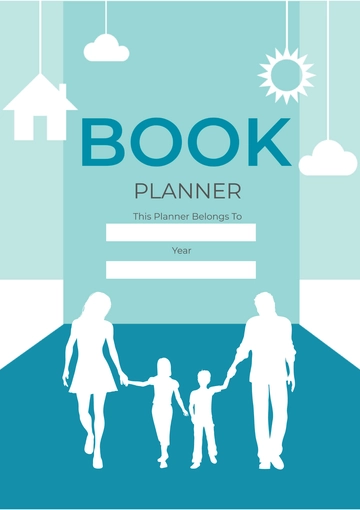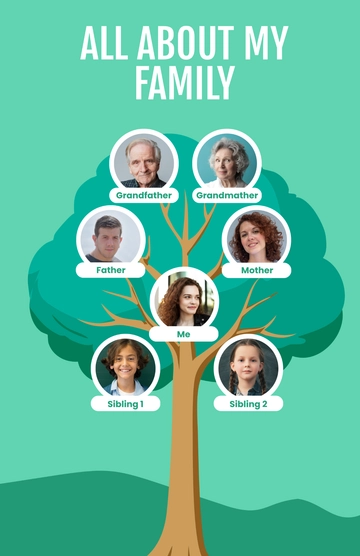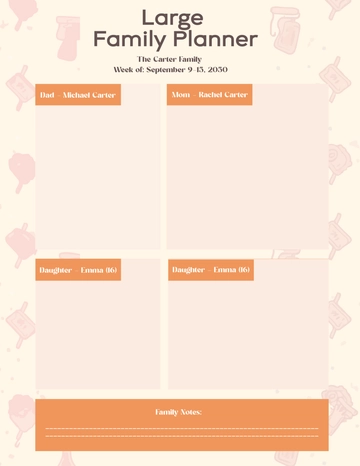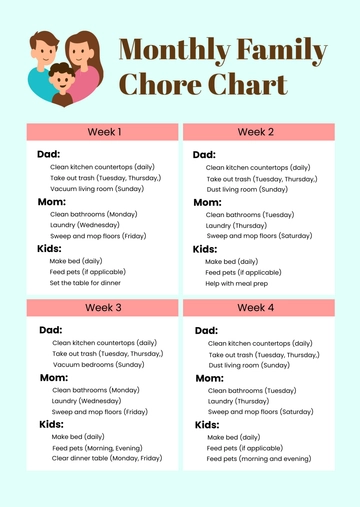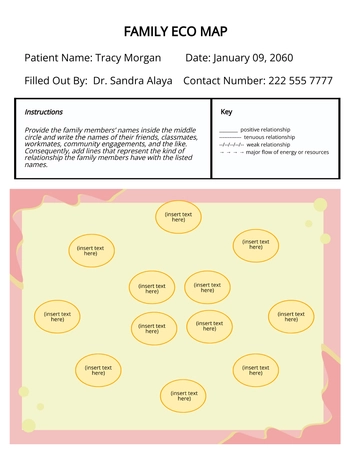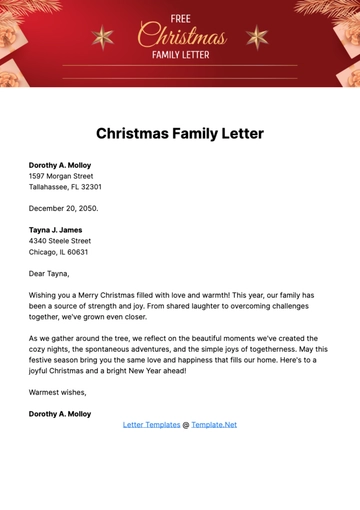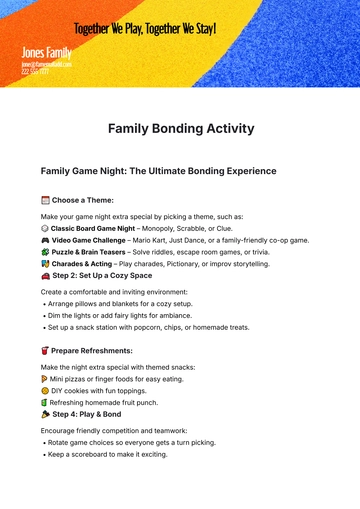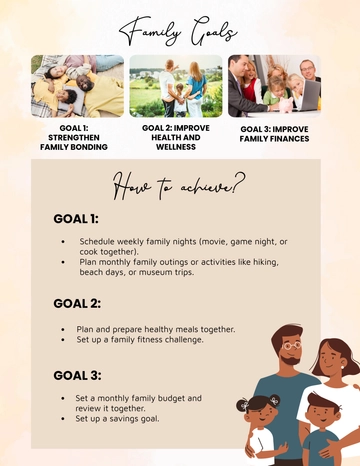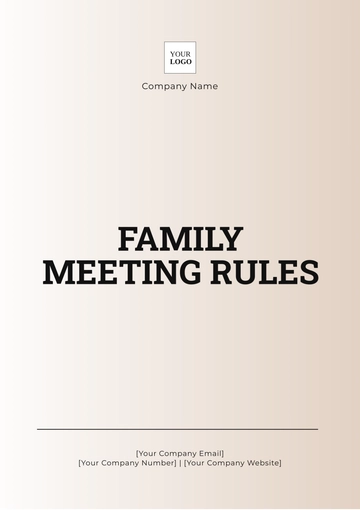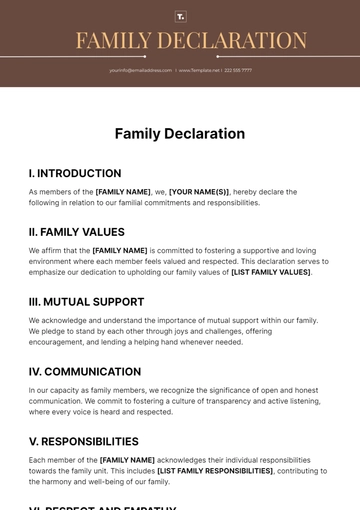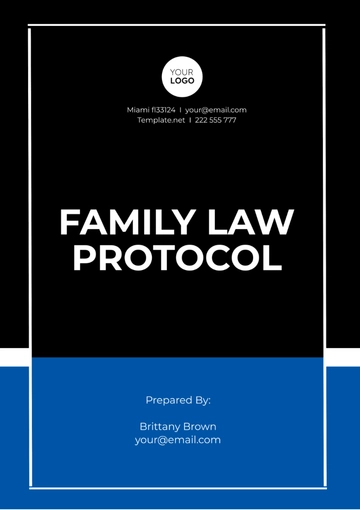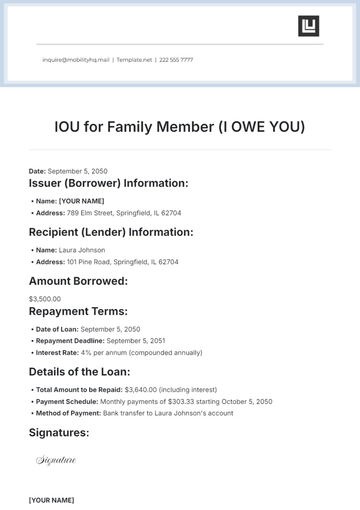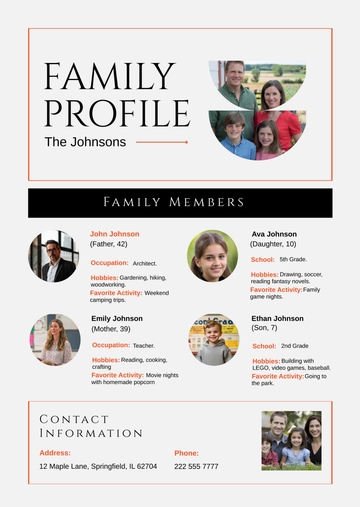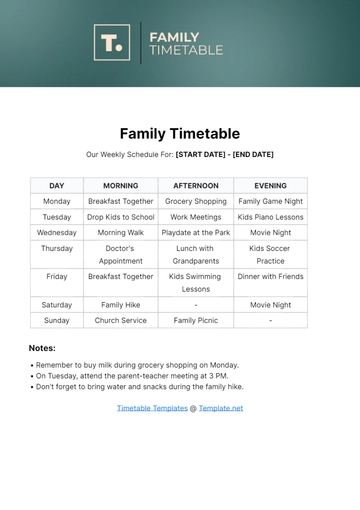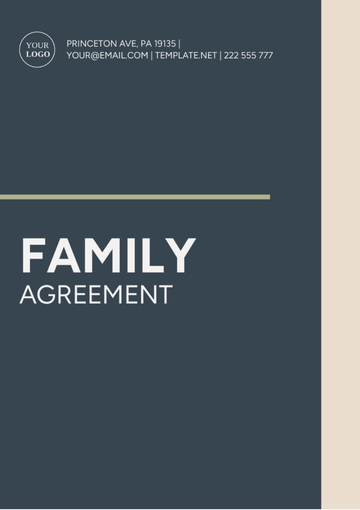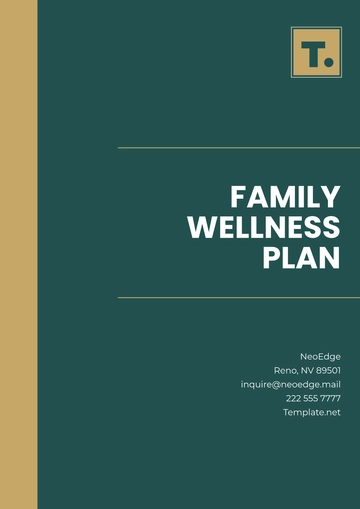Free Family Meeting Rules
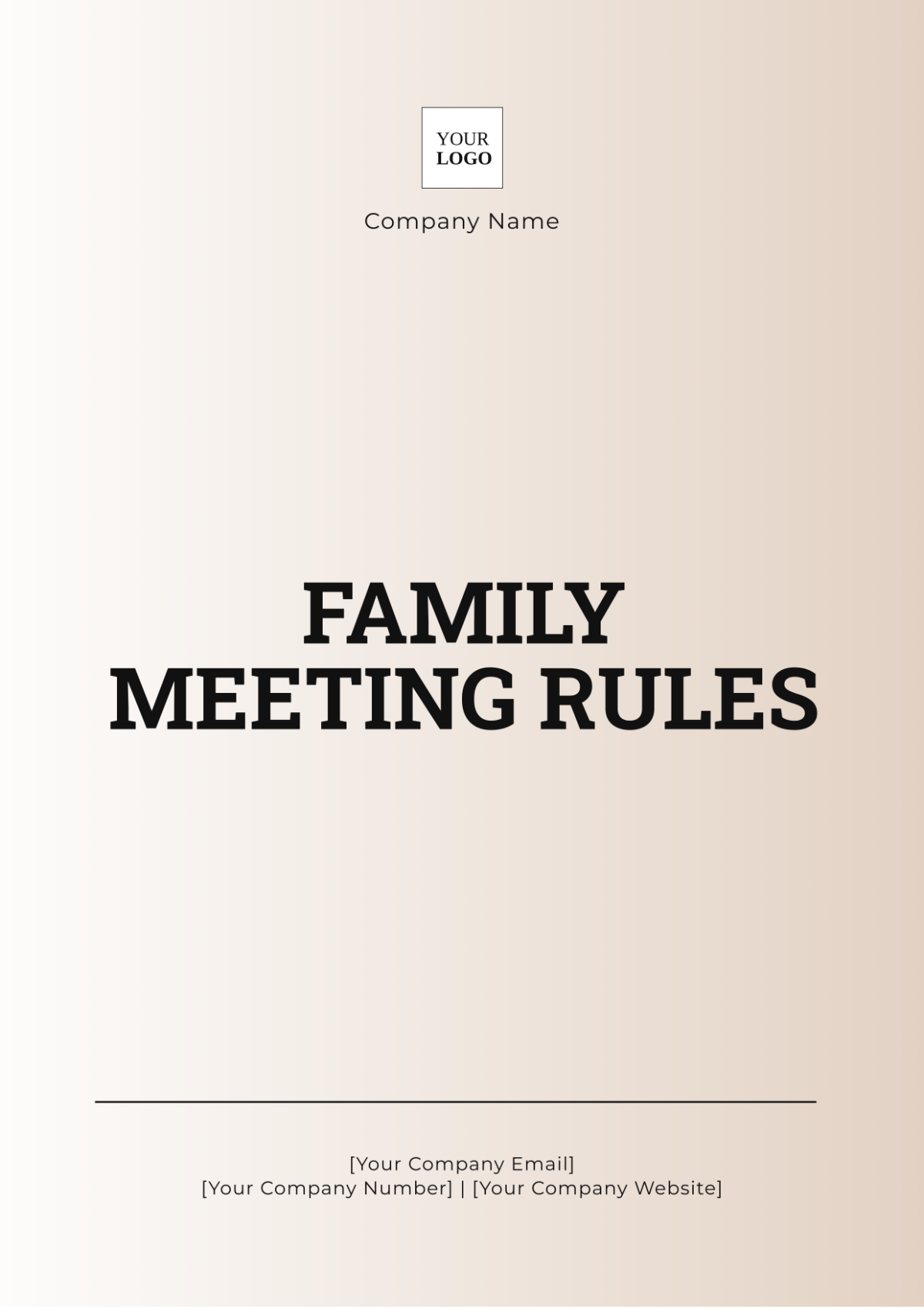
Prepared by: [Your Name]
Date: [Date]
I. Introduction
Family meetings provide an essential platform for discussion, decision-making, and maintaining open lines of communication. These rules are designed to establish a structured and respectful environment where every family member can voice their opinions and actively participate. Adhering to these guidelines will help ensure that meetings are productive and democratic.
II.Meeting Schedule
II.I Frequency
Regularly scheduled family meetings provide a routine that helps reinforce their importance and ensure that all members have a chance to participate in decision-making. The frequency can vary depending on the family's needs, ranging from weekly, bi-weekly, to monthly. This section should outline the agreed-upon frequency that best suits the family's schedule and commitments.
II.II Duration
Setting a time limit for the meetings helps keep them concise and focused. Common durations include 30 minutes or 1 hour, but the family can adjust this based on the agenda and the number of topics to be discussed. A time limit ensures that the meetings do not become too lengthy and that discussions remain efficient.
II.III Reminders
Reminders help ensure that all family members are aware of upcoming meetings. The family can use various methods, such as email, text messages, or calendar alerts, to notify members a day in advance. This helps prevent last-minute absences and ensures that everyone comes prepared.
III. Agenda Setting
III.I Submission of Topics
To ensure a structured meeting, family members should submit topics they wish to discuss ahead of time. This can be done through a shared document or email, ideally 2 days before the meeting. This practice allows for a more organized discussion and ensures that all important issues are addressed.
III.II Agenda Structure
A well-structured agenda helps keep the meeting on track. Common items to include are:
Old Business: Follow-up on previously discussed topics or unresolved issues.
New Business: Introduction of new topics or concerns that need attention.
Family Activities and Events: Planning and organizing upcoming family activities or events.
Open Floor: An opportunity for any family member to bring up additional topics not covered in the agenda.
IV. Roles and Responsibilities
IV.I Meeting Facilitator
The facilitator is responsible for leading the meeting, ensuring that it starts and ends on time and that the discussion stays on track. The facilitator also ensures that everyone has a chance to speak, promoting an inclusive environment.
IV.II Note Taker
The note-taker records key points, decisions, and action items during the meeting. They are responsible for distributing the minutes after the meeting, ensuring that everyone is aware of what was discussed and agreed upon.
IV.III Timekeeper
The timekeeper monitors the time allocated for each agenda item, providing warnings when time is running out. This role helps keep the meeting efficient and ensures that all topics are covered within the set duration.
V. Speaking Guidelines
V.I Taking Turns
To maintain order and ensure that everyone has an opportunity to speak, a "talking stick" or similar method can be used. This item is passed around, indicating whose turn it is to speak, helping prevent interruptions and ensuring a fair distribution of speaking time.
V.II Active Listening
Active listening involves fully concentrating on what the speaker is saying without planning your response while they are talking. It includes acknowledging the speaker's points, which fosters a respectful and attentive environment.
V.III Respectful Language
It's crucial to use constructive and non-judgmental language during discussions. Family members should avoid name-calling, insults, or any language that could be perceived as offensive or disrespectful.
VI. Decision-Making Process
VI.I Consensus
Whenever possible, the family should strive to reach a consensus, where all members agree on a decision. This approach ensures that everyone feels included and that the decision is collectively supported.
VI.II Majority Vote
If a consensus cannot be reached, a majority vote can be used as an alternative decision-making method. Each family member has one vote, and the majority rules. This ensures that decisions are made democratically.
VI.III Final Decision
All final decisions and action items should be documented clearly. This record serves as a reference for what was agreed upon and helps keep everyone accountable.
VII. Follow-Up and Accountability
VII.I Action Items
Action items are specific tasks or responsibilities assigned to family members based on the decisions made during the meeting. Listing these items ensures that everyone knows what is expected of them.
VII.II Review
At the beginning of each subsequent meeting, the family should review the action items from the previous meeting. This review helps track progress and ensure that commitments are being met.
VII.III Accountability
Checking in on the completion of action items helps maintain accountability. Family members should report on their progress, and the group can discuss any challenges or adjustments needed.
VIII. Conflict Resolution
VIII.I Addressing Conflicts
Disagreements should be addressed constructively, following a structured approach:
Identify the Issue: Clearly define the problem at hand.
Discuss Possible Solutions: Brainstorm potential solutions and evaluate their pros and cons.
Agree on a Plan of Action: Decide on a course of action that addresses the issue.
VIII.II Mediation
If conflicts cannot be resolved through discussion, the family may consider involving a neutral family member or an external mediator. This approach helps ensure that conflicts are managed fairly and objectively.
IX. Confidentiality and Respect
IX.I Confidentiality
Maintaining confidentiality is crucial for creating a trustworthy environment. Discussions during the meeting should remain within the family unless there is a mutual agreement to share specific information outside the group.
IX.II Mutual Respect
All family members should uphold a culture of respect. This includes listening to each other without interrupting, valuing differing opinions, and treating each other with kindness and consideration.
These expanded rules aim to create a supportive and effective framework for family meetings, ensuring that they are a productive space for communication and decision-making.
- 100% Customizable, free editor
- Access 1 Million+ Templates, photo’s & graphics
- Download or share as a template
- Click and replace photos, graphics, text, backgrounds
- Resize, crop, AI write & more
- Access advanced editor
Ensure productive and respectful gatherings with the Family Meeting Rules Template from Template.net. This customizable and editable template sets the tone for effective communication during family meetings. Editable in our Ai Editor Tool, it allows you to tailor the rules to your family's dynamics, fostering open dialogue and mutual respect for a structured discussion of important matters.
